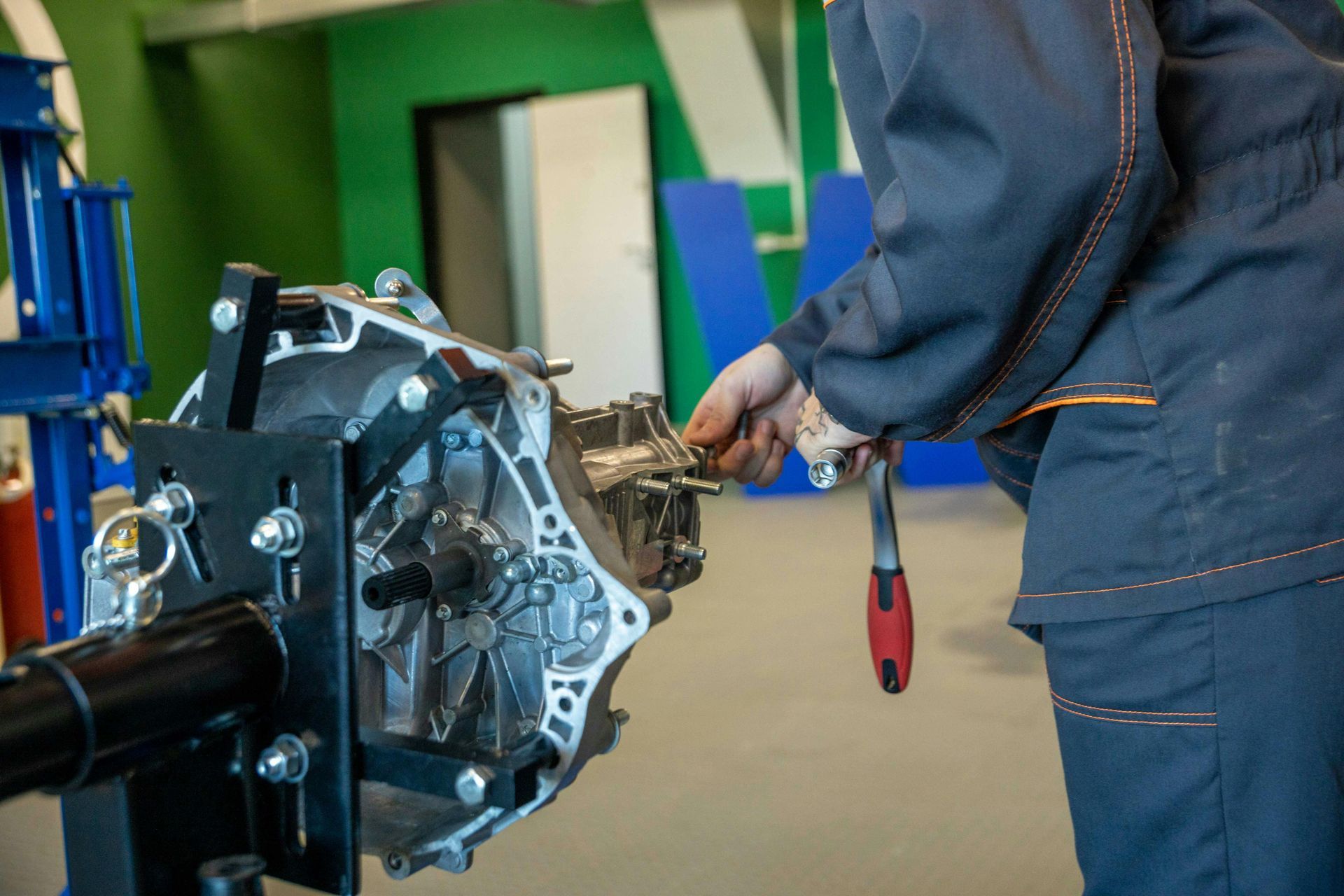
At Access Transmission in San Antonio, we understand how critical your vehicle’s transmission system is to its performance and longevity. When your transmission starts to slip, grind, or fail altogether, you need fast, reliable, and affordable solutions. That’s exactly what we deliver— precision diagnostics, expert repairs, and unbeatable customer care, all from a locally trusted team with decades of experience. Why Transmission Repair Should Never Be Delayed Ignoring a failing transmission can lead to catastrophic damage and extremely costly repairs. Whether you drive a car, truck, or SUV, your transmission is responsible for transferring power from the engine to the wheels efficiently. Early signs of trouble include: Slipping gears Delayed acceleration Burning smells Leaking fluid Check engine light Our certified technicians in San Antonio specialize in catching these issues early before they become major expenses. We don’t guess—we diagnose and fix it right the first time. Comprehensive Transmission Diagnostics and Service At Access Transmission, diagnostics are never rushed. We utilize the latest in diagnostic equipment to identify the exact source of the issue, whether it’s mechanical, hydraulic, or electronic. We provide a detailed inspection that includes: Transmission fluid check Road test Lift inspection Computer diagnostics Leak detection Once the issue is identified, we provide a transparent and fair estimate so you understand exactly what’s needed and why. Automatic Transmission Repair & Rebuild Services Automatic transmissions are complex systems that require an experienced, specialized team. Whether your transmission needs a fluid flush, clutch replacement, solenoid repair, or a complete rebuild, we have the tools, parts, and expertise to get it done quickly and correctly. We work on all major makes and models including: Ford Chevrolet Dodge Toyota Nissan Honda GMC Jeep Every rebuild includes brand-new OEM or better components , and we back our work with a strong warranty to give you total peace of mind. Manual Transmission & Clutch Repairs If you drive a manual transmission vehicle, we’ve got you covered. Our San Antonio transmission shop offers: Clutch replacement Flywheel resurfacing Shift linkage repair Hydraulic clutch system repair We restore that smooth, responsive gear change you love and rely on. Whether it’s a commuter car or performance vehicle, we treat every repair with the highest level of care and precision. T ransmission Fluid Service & Preventative Maintenance Routine maintenance is the key to long transmission life. Old or contaminated fluid can cause overheating, internal wear, and eventual failure. We offer full transmission servicing that includes: Fluid flush & filter replacement Pan gasket replacement Synthetic fluid upgrades Seal and o-ring checks We’ll also provide a fluid condition report with every service so you know exactly where your vehicle stands. Common Transmission Problems We Repair Transmission problems come in many forms, but we’ve seen—and solved—them all. Some of the most common issues we repair in San Antonio include: Torque converter failure Worn or broken gears Solenoid malfunction Valve body issues Low or dirty fluid Transmission control module failure Hard shifting or slipping Our team takes pride in delivering honest solutions without upsells or pressure. If a full rebuild isn’t needed, we won’t push it. If a minor fix can save your transmission, that’s exactly what we’ll recommend. Transmission Replacements in San Antonio Sometimes, a transmission is beyond repair. In these cases, we offer affordable, high-quality transmission replacement services. We source reliable units, install them with precision craftsmanship , and stand behind the job with industry-leading warranties. We also offer used, remanufactured, and rebuilt options to match your budget and vehicle needs. Whether you need a domestic or foreign transmission, we’ll find the perfect match and install it correctly the first time. Why Choose Access Transmission in San Antonio? Over 30 years of combined experience ASE-certified technicians Locally owned and operated Upfront pricing – no hidden fees Top-rated customer service Fast turnaround times Fleet & commercial accounts welcome When you choose Access Transmission, you’re not just getting a repair—you’re gaining a partner in keeping your vehicle safe and dependable. Serving All of San Antonio and Surrounding Areas We proudly serve vehicle owners across San Antonio, including: Downtown San Antonio Alamo Heights Stone Oak Leon Valley Converse Selma Universal City Boerne New Braunfels Our central location makes it easy for you to get your car in and out without hassle. We also offer convenient shuttle service and financing options to ease the process. Schedule Your Transmission Service Today Don’t wait for a breakdown to take action. If you notice any signs of transmission issues—or simply want a professional inspection— Access Transmission in San Antonio is ready to help. We offer fast, friendly, and expert service that’s built on honesty, integrity, and results. Call us today at (210) 490-4411 or visit https://www.accesstransmission.com to schedule your appointment. Your vehicle deserves the best, and so do you.
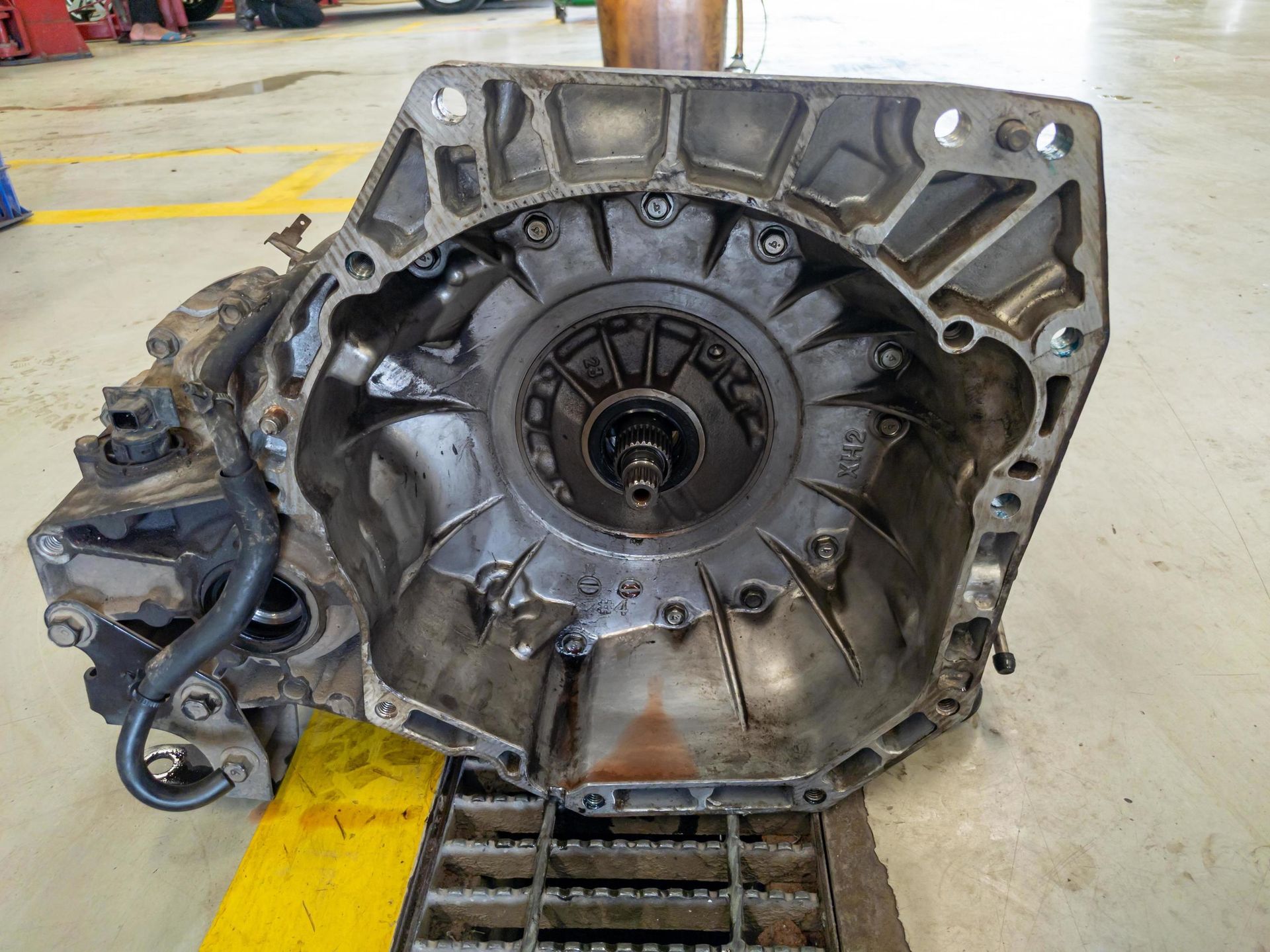
At Access Transmission , we specialize in providing top-quality transmission repair services to drivers in San Antonio and the surrounding areas. Our experienced and ASE-certified technicians are committed to ensuring your vehicle runs smoothly and efficiently. With a reputation for excellence and a customer-first approach, we are your go-to experts for all transmission-related needs. Understanding Your Transmission System The transmission is a vital component of your vehicle, responsible for transferring power from the engine to the wheels. Understanding how your transmission works can help you recognize early signs of trouble and seek timely repairs. Automatic Transmissions Automatic transmissions shift gears seamlessly without driver intervention, relying on hydraulic fluid, sensors, and control modules. Modern vehicles may feature Continuously Variable Transmissions (CVTs) that use a belt-and-pulley system for smooth and efficient acceleration. Manual Transmissions Manual transmissions require the driver to operate a clutch and shift gears manually. While these systems offer better control and fuel efficiency, they require precise operation to avoid excessive wear and tear. Common Signs of Transmission Problems Transmission issues can lead to costly repairs if not addressed early. Look out for these warning signs: Slipping Gears: If your vehicle unexpectedly shifts out of gear, struggles to accelerate, or loses power, your transmission may be slipping. Delayed or Hard Shifting: Hesitation when changing gears, rough shifts, or difficulty getting into gear can indicate transmission trouble. Leaking Transmission Fluid: A red or brown puddle under your vehicle is a clear sign of a transmission fluid leak. Burning Smell: Overheating transmission fluid can produce a burnt odor, signaling potential internal damage. Check Engine Light: While this light can indicate various issues, transmission-related faults often trigger it. If you notice any of these symptoms, it's crucial to have your transmission inspected by a professional. Comprehensive Transmission Repair Services At Access Transmission , we offer a full range of transmission services to keep your vehicle in top condition: Automatic Transmission Repair San Antonio: We diagnose and repair all types of automatic transmission issues, including slipping, erratic shifting, and overheating. Manual Transmission & Clutch Repair San Antonio: Whether you're dealing with a worn clutch or a grinding gearbox, our team provides expert manual transmission repairs. Transmission Diagnostics San Antonio: Using cutting-edge diagnostic tools, we accurately identify transmission problems to provide precise and effective solutions. Transmission Fluid Change & Flush San Antonio: Regular maintenance, including transmission fluid changes and full system flushes, extends the life of your transmission. Why Choose Access Transmission? We are dedicated to providing exceptional service and ensuring customer satisfaction. Here’s why San Antonio drivers trust us: Highly Skilled Technicians: Our team stays up-to-date with the latest transmission repair techniques to provide expert service for all vehicle makes and models. Honest & Transparent Pricing: We believe in upfront pricing with no hidden fees, ensuring you get the best value for your repair needs. Fast & Reliable Service: We understand the inconvenience of vehicle issues, which is why we strive to complete repairs efficiently without compromising on quality. Customer Satisfaction Guaranteed: Our positive customer reviews reflect our commitment to excellence and trustworthiness in the automotive repair industry. What Our Customers Say "Fantastic service! My car had serious transmission issues, and Access Transmission diagnosed and repaired it quickly. They explained everything clearly, and the price was reasonable. Highly recommend!" — Mike R. "Honest, professional, and reliable! I took my truck in for transmission work, and they got it back to me running like new. They truly care about their customers!" — Jessica T. Contact Access Transmission Today For expert transmission repair in San Antonio, TX, trust the professionals at Access Transmission. Contact us today to schedule a diagnostic or repair service. Address: 3255 Thousand Oaks, San Antonio, TX 78247 Phone: (210) 490-4411 Website: https://www.accesstransmission.com We’re here to keep your vehicle running smoothly and reliably. Let Access Transmission be your trusted transmission repair specialist in San Antonio!
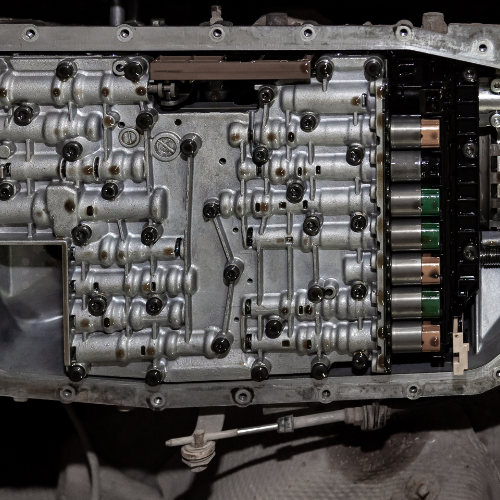
Transmission solenoids play a vital role in automatic transmissions, as they regulate the flow of transmission fluid and facilitate smooth gear shifting by engaging the appropriate gear. These compact, electromechanical devices are typically situated within the transmission valve body and are controlled by the vehicle's onboard computer system. Upon receiving signals from the computer, the solenoids open and close, allowing transmission fluid to flow to the various clutch packs and bands, thereby enabling seamless gear shifts.
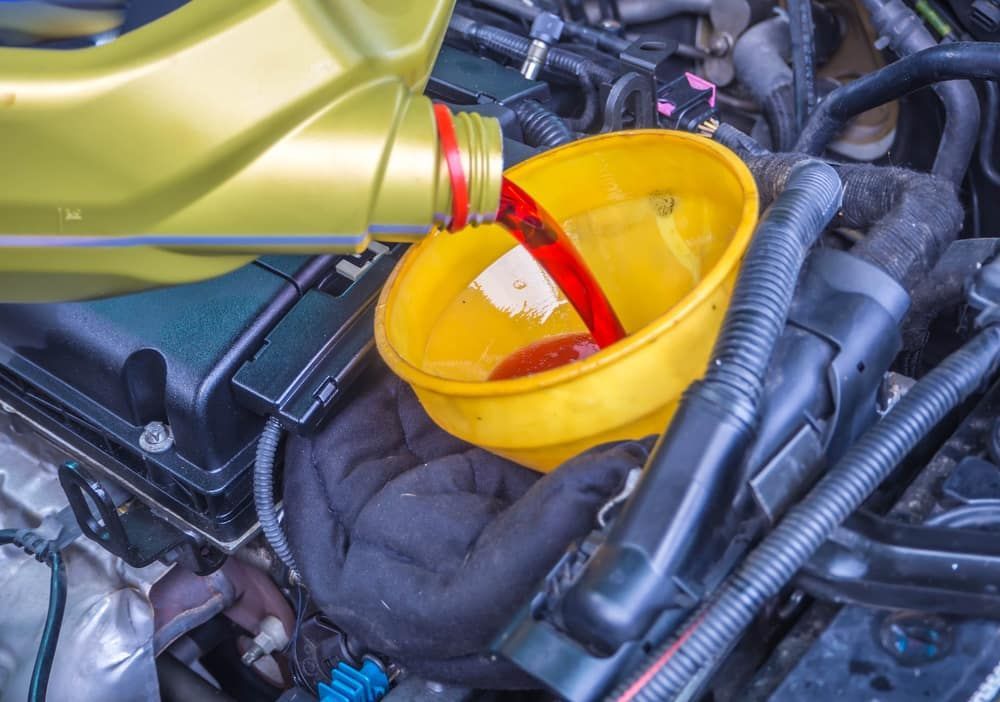
Transmission fluid plays a crucial role in the proper functioning of a vehicle's transmission system, as it lubricates moving components and ensures smooth operation. Insufficient transmission fluid levels can lead to a variety of problems that, if left unaddressed, can result in expensive repairs. This article will outline five key indicators that suggest a vehicle's transmission fluid levels are low, along with recommended actions to take if these signs are observed. Key Takeaways Strange smells and sounds, such as burning or a whining noise, can indicate low transmission fluid. Difficulty shifting gears or a delay in response when shifting could be a sign of low transmission fluid. Transmission fluid leaks under the car are a clear indication that the fluid levels are low.
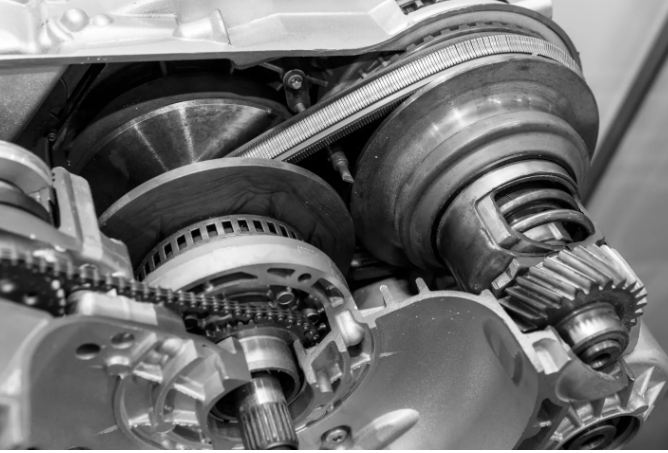
Transmission slipping can be a frustrating and potentially dangerous issue for vehicle owners. Understanding the causes can help in diagnosing and fixing the problem. Here are some of the top causes of slipping transmissions: 1. Worn Out Clutches: One of the most common causes of a slipping transmission is worn out clutches. Clutches are responsible for engaging and disengaging the gears in a manual transmission or the automatic transmission's torque converter. Over time, clutches can become worn out due to regular use eventually lose their ability to grip the gears properly. This can result in slipping gears and difficulty shifting. Preventive Maintenance Tip: Regularly inspect and replace clutch components as needed to ensure smooth operation of the transmission. Troubleshooting Tip: If you notice delayed or rough shifting, it may indicate worn out clutches. Have a professional mechanic inspect and replace the clutch components if necessary. 2. Low Transmission Fluid Levels: Another common cause of slipping transmissions is low transmission fluid levels. Transmission fluid lubricates the moving parts inside the transmission and helps regulate the transmission's temperature. If the fluid level is low, it can lead to increased friction and overheating, which can cause the transmission to slip. Preventive Maintenance Tip: Check the transmission fluid level regularly and top it up if needed to ensure proper lubrication and cooling of the transmission. Troubleshooting Tip: If you notice fluid leaks or a burning smell coming from the transmission, it may indicate low transmission fluid levels. Check the fluid level and top it up as required. 3. Faulty Solenoids: Solenoids are electrical components that control the flow of transmission fluid and engage the gears in an automatic transmission. If a solenoid is faulty or malfunctioning, it can cause a slipping transmission. Common issues with solenoids include electrical failures, blockages, or mechanical malfunctions. Prevention Tips: Regular Maintenance: Follow your vehicle's maintenance schedule for fluid changes and inspections. Prompt Repairs: Address any transmission issues as soon as they arise to prevent further damage. Proper Driving Habits: Avoid aggressive driving, which can put extra strain on the transmission Troubleshooting Tip: If you experience delayed or erratic shifting, it may indicate a problem with the solenoids. Have a professional mechanic diagnose and replace any faulty solenoids if necessary. In conclusion, a slipping transmission can be caused by various factors such as worn-out clutches, low transmission fluid levels, and faulty solenoids. By regularly inspecting and maintaining these components, you can prevent transmission problems and ensure smooth operation of your vehicle. If you encounter any issues with your transmission, it's important to have them addressed promptly by a qualified mechanic to avoid further damage, Contact Access Transmission today to access the problem.

Dodge Trucks are known for their durability and power, but like any vehicle, they can encounter transmission issues. Whether you have a older model Ram1500 or a newer Ram3500, it's important to be aware of common transmission problems that may arise and how to avoid costly repairs. One of the most transmission issues that Ram Trucks face is fluid leaks. Over time, seals can wear out or become damaged, leading to leaks that can cause a drop in transmission fluid levels. Low transmission fluid can lead to overheating and ultimately, transmission failure. To avoid this issue, it's essential to regularly check your transmission fluid levels and look for any signs of leaks under your truck. Another common problem with Ram Truck transmissions is rough shifting or slipping gears. This can be caused by a variety of factors, such as worn out clutch plates, a faulty solenoid, or a low transmission fluid level. If you notice your truck is shifting abnormally or struggling to change gears, it's important to have it inspected by a professional mechanic as soon as possible to prevent further damage. To keep your Ram Truck's transmission running smoothly and avoid costly repairs, it's important to follow a few key maintenance tips. Regularly servicing your transmission, including changing the fluid and filter as recommended by the manufacturer, can help prevent issues from arising. Additionally, avoiding excessive towing or hauling heavy loads can reduce the strain on your transmission and extend its lifespan. If you suspect that your Ram Truck may be experiencing transmission problems, there are a few key signs to look out for. These include whining or clunking noises while shifting gears, a burning smell coming from your engine, or slipping gears while driving. If you notice any of these signs, it's important to have your truck inspected by a trusted mechanic to diagnose the issue and prevent further damage. When it comes to repairs, it's important to find a reputable transmission repair mechanic who specializes in working on Ram Trucks. Access Transmission can help you with any issues you are having with your Dodge Ram Pick-Up Truck. Whether you need a simple transmission fluid change or a more complex repair, it's crucial to entrust your truck to a professional who has experience working on Ram transmissions. Additionally, using genuine Ram parts for any repairs can help ensure the longevity and performance of your transmission. In conclusion, being aware of common transmission issues that Ram Trucks may face and following best practices for maintenance can help extend the lifespan of your truck's transmission and prevent costly repairs down the road. By regularly checking your transmission fluid levels, avoiding excessive towing, and promptly addressing any signs of transmission problems, you can keep your Ram Truck running smoothly for years to come. If you do encounter transmission issues, be sure to contact Access Transmission who specializes in working on Ram Trucks to ensure quality repairs.
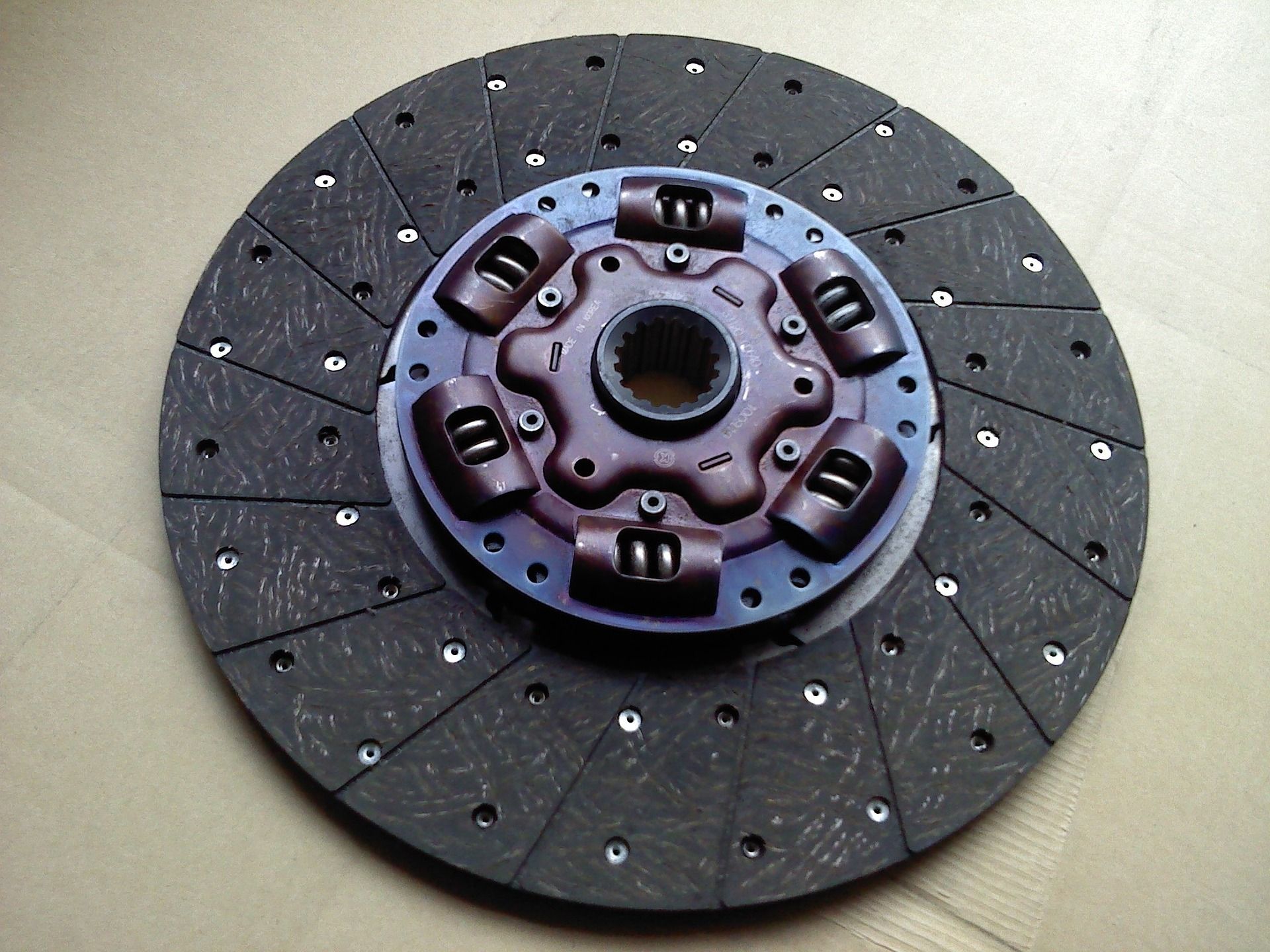
The clutch is a crucial component of a vehicle's transmission system, enabling the driver to engage and disengage the engine from the wheels. Over time, clutches can wear out or develop issues. Here are some common clutch problems and their symptoms, along with potential causes and solutions. 1. Slipping Clutch Symptoms: Loss of acceleration despite an increase in engine RPM. Burning smell from the clutch area. Difficulty in towing heavy loads or driving uphill. Causes: Worn clutch disc. Oil contamination on the clutch disc. Weak or broken clutch springs. Solutions: Replace the clutch disc. Repair any oil leaks and clean the clutch components. Replace the clutch springs if necessary. 2. Clutch Drag Symptoms: Difficulty shifting gears. Grinding noise when shifting gears. Vehicle moves slightly even when the clutch pedal is fully depressed. Causes: Misadjusted clutch linkage. Warped clutch disc or pressure plate. Air in the hydraulic clutch system. Solutions: Adjust the clutch linkage to the correct specifications. Inspect and replace the clutch disc or pressure plate if warped. Bleed the hydraulic clutch system to remove any air. 3. Clutch Judder Symptoms: Vibration or shuddering when the clutch is engaged. Difficulty in achieving a smooth start. Causes: Contaminated clutch disc (oil or grease). Warped flywheel. Worn engine or transmission mounts. Solutions: Clean or replace the contaminated clutch disc. Resurface or replace the flywheel. Replace worn mounts to reduce vibration. 4. Clutch Pedal Issues Symptoms: Clutch pedal feels soft or spongy. Clutch pedal sticks to the floor. High or low clutch pedal engagement point. Causes: Low hydraulic fluid level. Worn or damaged clutch master or slave cylinder. Misadjusted clutch cable. Solutions: Check and refill the hydraulic fluid. Inspect and replace the master or slave cylinder if damaged. Adjust the clutch cable to the proper position. 5. Clutch Noise Symptoms: Squeaking or chirping noise when the clutch pedal is pressed. Grinding noise from the transmission area. Causes: Worn release bearing. Misaligned clutch components. Damaged pressure plate. Solutions: Replace the release bearing. Ensure proper alignment of all clutch components. Inspect and replace the pressure plate if necessary. Preventive Maintenance Tips Regularly check and maintain the correct hydraulic fluid level. Avoid riding the clutch pedal (keeping the foot on the pedal unnecessarily). Ensure proper adjustment of the clutch linkage and cable. Periodically inspect clutch components during routine maintenance checks. By understanding these common clutch problems and their symptoms, vehicle owners can better diagnose issues and take timely action to prevent more serious damage. Regular maintenance and prompt repairs are key to keeping the clutch system in good working condition.

Is it Cheaper to Repair or Replace a Transmission? An In-depth Analysis When faced with transmission issues, car owners often grapple with the dilemma of whether to repair or replace their transmission. This decision is not only crucial for your vehicle's performance but also for your wallet. In this blog post, we’ll dive deep into the factors that influence this decision and make predictions on how trends in transmission repair are likely to evolve in the near future. Understanding Transmission Repair vs. Replacement Transmission Repair: Transmission repair typically involves fixing specific components of the transmission system. Common repairs include fixing a leak, replacing a solenoid, or addressing issues with the clutch. These repairs can be relatively affordable, with costs ranging from $300 to $1,500 depending on the severity of the issue and the make and model of the vehicle. Transmission Replacement: Replacing a transmission is a more extensive and costly process. It involves removing the old transmission and installing a new or rebuilt one. The costs for transmission replacement can range from $1,800 to $3,400 or more, depending on the vehicle and the type of transmission. Factors Influencing the Decision 1. Age and Condition of the Vehicle: For older vehicles, a transmission replacement may not be cost-effective if the vehicle’s value is low. For newer vehicles, a replacement might be a better investment for ensuring long-term reliability. 2. Extent of Damage: Minor issues can often be resolved with repairs. Extensive damage, such as a completely failed transmission, may necessitate a replacement. 3. Cost Considerations: Repair costs are generally lower than replacement costs. Long-term reliability and potential future repair costs should be factored into the decision. 4. Warranty: If your vehicle is still under warranty, some repairs or replacements may be covered, significantly affecting the cost. 5. Availability of Parts: For older or less common vehicles, finding parts for repairs can be challenging, sometimes making replacement a more viable option. Predictions for the Future of Transmission Repair As automotive technology continues to evolve, several trends are likely to impact the transmission repair and replacement landscape: 1. Increased Use of Automated and CVT Transmissions: The prevalence of continuously variable transmissions (CVTs) and automated manual transmissions is likely to increase. These systems can be more complex and expensive to repair but may offer better fuel efficiency and performance. 2. Advancements in Diagnostic Tools: Improved diagnostic technology will enable more accurate and efficient identification of transmission issues, potentially reducing repair costs and times. 3. Extended Warranties and Service Plans: Manufacturers are increasingly offering extended warranties and service plans, which can influence the decision to repair or replace a transmission. 5. Increased Focus on Sustainability: There may be a growing emphasis on repairing rather than replacing components to reduce waste and environmental impact. This trend could lead to more affordable and sustainable repair options. Deciding whether to repair or replace a transmission depends on various factors, including the vehicle’s age, the extent of the damage, and the cost involved. While repairs are generally cheaper, replacements may be necessary for severe issues or to ensure long-term reliability. Looking ahead, advancements in technology and shifts in automotive trends will continue to shape the transmission repair industry, potentially making repairs more efficient and cost-effective. For expert advice and reliable transmission services, consider reaching out to [ Access Transmission ]( https://www.accesstransmission.com ), where our experienced professionals can help you make the best decision for your vehicle.
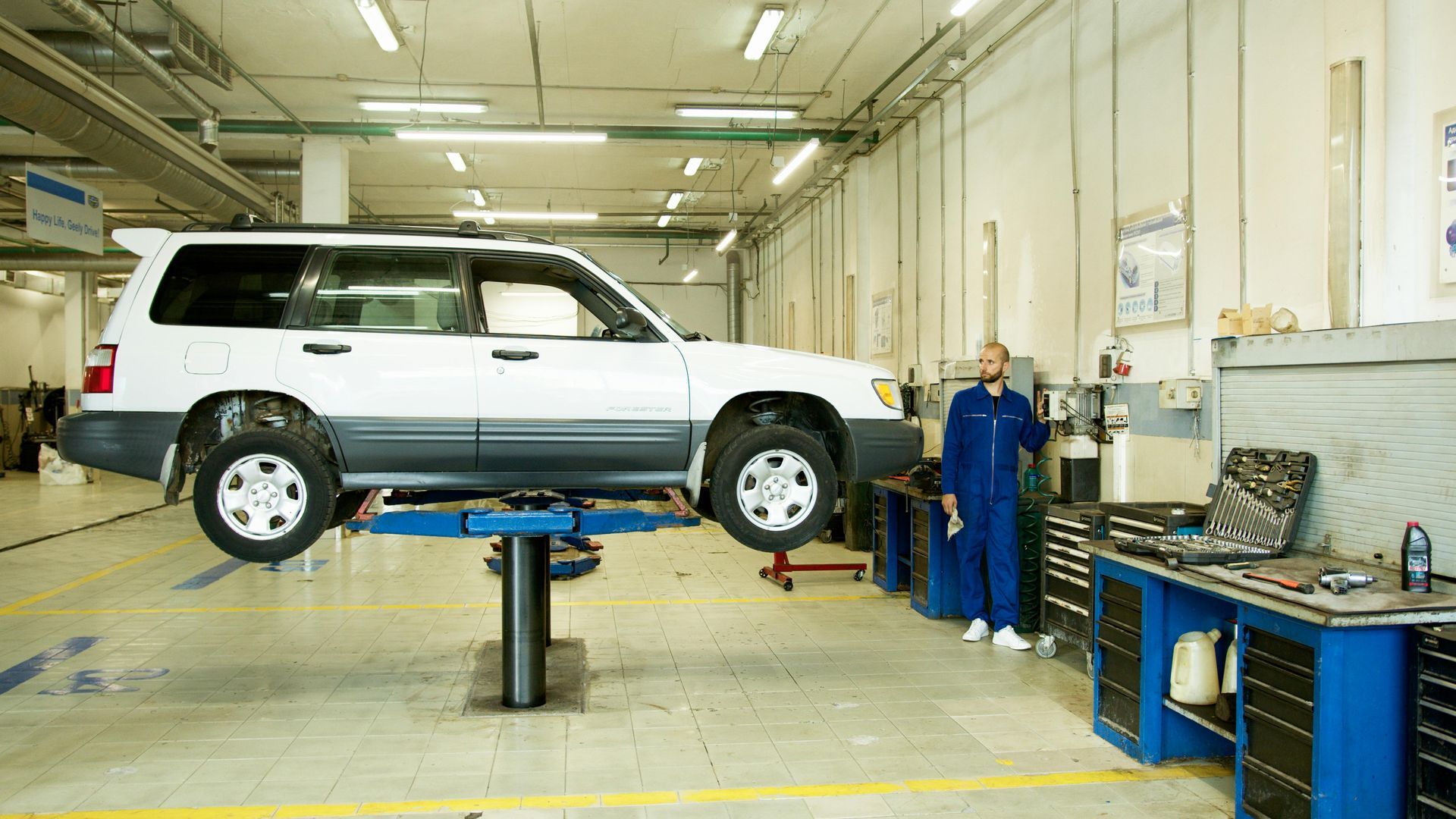
When it comes to vehicle maintenance, Access Transmission always has a few topics that are misunderstood about transmission repair from a consumers standpoint. Unfortunately, these misconceptions can lead to costly mistakes and unnecessary stress for car owners. Let's debunk some of the most common myths about transmission repair and set the record straight. Myth 1: Transmission Repair is Always Extremely Expensive Truth: While transmission repairs can be costly, they are not always prohibitively expensive. The cost largely depends on the nature of the problem. Simple issues like replacing a transmission fluid line or solenoid can be relatively inexpensive. Regular maintenance, such as fluid changes, can prevent major repairs and keep costs down. Always get a detailed estimate and second opinion if you're unsure. Myth 2: All Transmission Issues Require a Complete Overhaul Truth: Not every transmission problem necessitates a complete rebuild or replacement. Many issues can be resolved with minor repairs or adjustments. For example, problems with the transmission control module or solenoids might be fixed without needing an overhaul. A professional diagnosis is essential to determine the exact cause and appropriate repair. Myth 3: Transmissio n Fluid Never Needs to Be Changed Truth: Transmission fluid, like engine oil, degrades over time and needs to be changed according to the manufacturer's recommendations. Old or contaminated fluid can lead to poor performance and damage. Regular fluid changes help maintain smooth shifting and extend the life of your transmission. Myth 4: A Slipping Transmission Always Means It's Failing Truth: A slipping transmission can be a sign of several issues, not all of which mean the transmission is failing. Low fluid levels, worn-out fluid, or minor internal problems could cause slipping. Addressing these issues promptly can prevent more significant damage. Myth 5: You Can Use Any Transmission Fluid Truth: Using the correct type of transmission fluid is crucial. Different vehicles require specific types of fluid, and using the wrong one can cause severe damage. Always consult your owner's manual or a trusted mechanic to ensure you're using the right fluid for your transmission. Myth 6: Transmission Repair Shops Aren't Trustworthy Truth: While it's essential to find a reputable repair shop, most professional transmission repair technicians are skilled and honest. Look for shops with good reviews, proper certifications, and clear communication. Establishing a relationship with a trustworthy mechanic can give you peace of mind and confidence in their recommendations. Myth 7: DIY Transmission Repairs Are Easy Truth: Transmission repairs are complex and often require specialized knowledge and tools. Attempting DIY repairs without the proper expertise can lead to further damage and higher repair costs. It's best to leave transmission issues to trained professionals who can accurately diagnose and fix the problem. Conclusion: Understanding the realities of transmission repair can help you make informed decisions and avoid unnecessary expenses. Regular maintenance and prompt attention to minor issues can prevent major problems down the road. Always seek professional advice and trust reputable mechanics to keep your transmission running smoothly. If you have any type of questions you may not no the answer too, please contact Access Transmission and we will help answer any questions you may have.
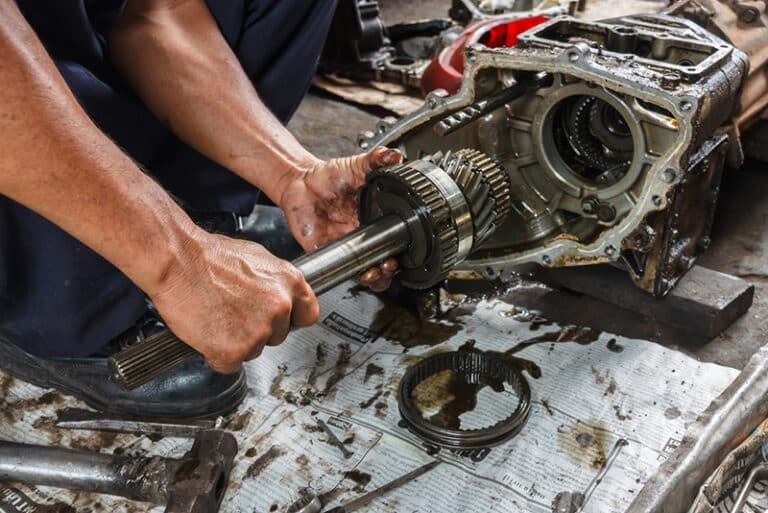
When it comes to transmission services for all vehicle models in San Antonio, TX, Access Transmission stands out as a premier provider offering a range of maintenance and repair procedures. Access Transmission specializes in transmission services for all types of vehicles, from cars to heavy-duty trucks, ensuring that each vehicle receives the necessary care and attention to keep it running smoothly. Access Transmission offers a variety of transmission services, including transmission fluid flushes, transmission filter replacements, and transmission rebuilds. These services are essential for maintaining the health and longevity of a vehicle's transmission system, which is a critical component of a vehicle's overall performance. By regularly servicing the transmission, vehicle owners can prevent costly repairs and ensure that their vehicle operates at its best. One of the key advantages of choosing Access Transmission for transmission services is their expertise and experience in working with all vehicle models. Their team of skilled technicians is trained to address the unique needs of each vehicle type, from foreign imports to American-made vehicles. This specialized knowledge allows them to accurately diagnose transmission issues and provide efficient solutions tailored to each vehicle's specific requirements. Access Transmission also prides itself on using high-quality parts and materials in their repairs, ensuring that customers receive reliable and long-lasting results. By utilizing top-of-the-line products, Access Transmission can guarantee the durability and performance of their work, giving customers peace of mind knowing that their vehicle is in good hands. For example, Access Transmission's transmission rebuilds have been known to greatly benefit older vehicles with worn-out transmission systems. By carefully disassembling and rebuilding the transmission with precision, Access Transmission can restore the functionality of the transmission, extending the life of the vehicle and improving its performance. In addition to their expertise and quality service, Access Transmission places a high priority on customer satisfaction. They strive to provide a seamless and hassle-free experience for each customer, from scheduling an appointment to receiving exceptional service. By offering transparent pricing, clear communication, and personalized recommendations, Access Transmission ensures that customers feel valued and well taken care of throughout the transmission service process. Overall, Access Transmission plays a vital role in ensuring optimal vehicle performance and longevity for all vehicle models in San Antonio, TX. Their commitment to quality service, expertise in transmission maintenance and repair, and dedication to customer satisfaction make them a trusted choice for all transmission needs. Choose Access Transmission for reliable and professional transmission services that will keep your vehicle running smoothly for years to come
